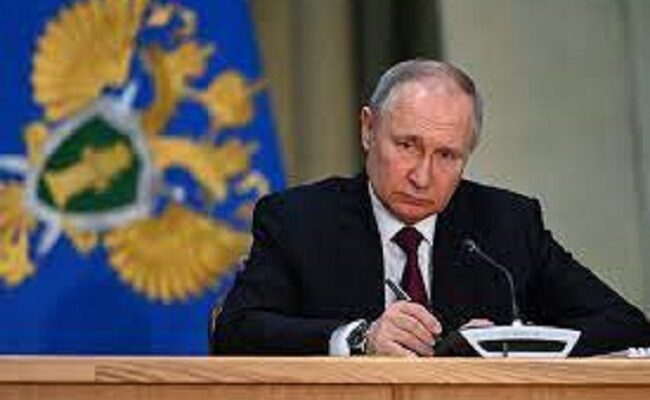

The Finnish flag is due to be raised at The North Atlantic Treaty Organization (NATO) headquarters in Brussels, as Russia’s western neighbour becomes the 31st member of the Western alliance reports the BBC.
Finnish President, Sauli Niinisto and the US Secretary of State, Antony Blinken will join NATO ministers for a joining ceremony.

Finland’s accession is a setback for Russia’s Vladimir Putin, who repeatedly complained about NATO’s expansion before his full-scale invasion of Ukraine.
The length of Russia’s border with NATO member states has now doubled.
Finland shares a 1,340-km eastern frontier with Russia and formally applied to join NATO with Sweden last May because of Russia’s war.
They had previously both adopted a policy of non-alignment. But after the Ukraine invasion, they chose the protection of NATO’s Article Five, which says an attack on one member is an attack on all.
In effect, it means if Finland were invaded, all NATO members, including the US would come to its aid.
Russia’s invasion prompted a surge in Finnish public opinion towards joining NATO to 80% in favour.
“This will make Finland safer and NATO stronger. President Putin had a declared goal of the invasion of NATO to get less Nato along its borders and no more membership in Europe, he’s getting exactly the opposite,” Nato Secretary General, Jens Stoltenberg told reporters on Tuesday.
Sweden’s application has for now become stuck, with Turkish President Recep Tayyip Erdogan accusing Stockholm of embracing Kurdish militants and allowing them to demonstrate on the streets. Hungary is also yet to approve Sweden joining.
Stoltenberg said NATO would ensure Sweden would become the next member to join.
It will formally join when Foreign Minister, Pekka Haavisto hands over accession papers to US Secretary of State Antony Blinken.
Russia’s Deputy Foreign Minister, Alexander Grushko, has warned that if Finland’s new NATO allies deploy forces or resources there, Moscow “will take additional steps to reliably ensure Russia’s military security”.
NATO will now have seven members on the Baltic Sea, further isolating Russia’s coastal access to St Petersburg and its small exclave of Kaliningrad.
READ ALSO FROM NIGERIAN TRIBUNE








